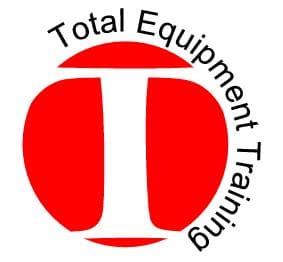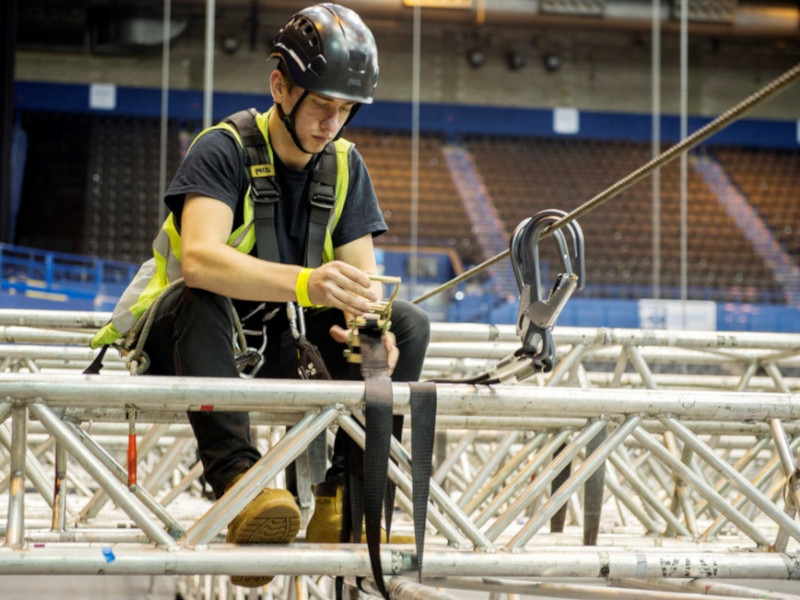On-Site Certified Rigger Training in New Jersey
Accidents can happen on the job site unexpectedly at any time, for this reason, it’s very important that all riggers have the proper training and certifications necessary to perform their job safely as crane riggers play an essential role in job site safety while cranes are in operation.
A crane rigger has many responsibilities and plays an integral part in the safety of a job site where cranes are in operation.
Qualified Rigger Regulations in New Jersey
Per OSHA regulation 1926.1404 (r)(1), all employers in NJ must use qualified riggers during all hoisting activities for assembly/disassembly work. In addition, a qualified rigger must be used whenever workers are within the fall zone and hooking, unhooking or guiding a load, or doing the initial connection of a load to a component or structure.
How to Become a NCCCO Certified Rigger in New Jersey
In order to become a Certified Rigger in NJ, candidates must pass both a Written and a Practical Examination. Candidates have 12 months from when they pass either the Written or the Practical Exam to pass the corresponding (Written or Practical) Exam for each rigger certification level.
In addition, in order to become a certified rigger in New Jersey, individuals must also:
- Be at least 18 years old
- Comply with NCCCO’s Substance Abuse Policy
- Comply with NCCCO’s Code of Ethics
NCCCO Rigger Recertification in New Jersey
In New Jersey, CCO Rigger Certification is valid for five years. In order to be recertified, candidates must complete all requirements during the 12 month period prior to when their certification expires. The recertification requirements include:
- Passing the Recertification Written Exam
- Compliance with NCCCO’s Substance Abuse Policy
- Compliance with NCCCO’s Code of Ethics
There is no grace period once a certification has expired. Certification that has lapsed must pass both the full Written and Practical Certification Exam again.
How to Become a Qualified Rigger in NJ
The requirements for becoming a qualified rigger in New Jersey differ than becoming a Certified Rigger. Unlike the NCCCO Rigger Certification, there is not an accredited organization to assess the qualification of the rigger candidate. Determining if a candidate is a qualified rigger is instead based on the nature of the load, lift, and equipment used in hoisting a specific load as well as the candidate’s knowledge and experience. Typically, this is site specific and the training is not portable. An NCCCO Certified Rigger is usually considered qualified for most lifts. The Certification is portable and many companies/cities/states require it.
Our On-Site Rigger Training Locations in NJ
At Total Equipment Training, we provide both OSHA Rigger Qualification and NCCCO Rigger Certification offering training on-site at your facility across NJ in locations including Newark, Jersey City, Paterson, Hoboken, Princeton, Trenton, and Atlantic City, as well as across the United States. Our knowledgeable staff will help guide you to decide which program best suits your needs.
Contact Information for New Jersey OSHA
If you have questions about occupational safety and health standards and rigger qualifications in New Jersey, you can contact the NJ Department of Labor and Industry or OSHA directly at:
Department of Labor and Workforce Development
1 John Fitch Plaza, P.O. Box 110 Trenton, NJ 08625
OSHA New Jersey
Avenel Area Office
1030 St. Georges Avenue
Plaza 35, Suite 205
Avenel, New Jersey 07001
(732) 750-3270
Interested in Rigger Training in New Jersey
Contact us today or give us a call at (610) 321-2679 and our knowledgeable staff will provide you with the information you need and tailor an on-site rigger certification training program to fit your needs and meet OSHA requirements in New Jersey.
CONTACT US TODAY
(610) 321-2679

